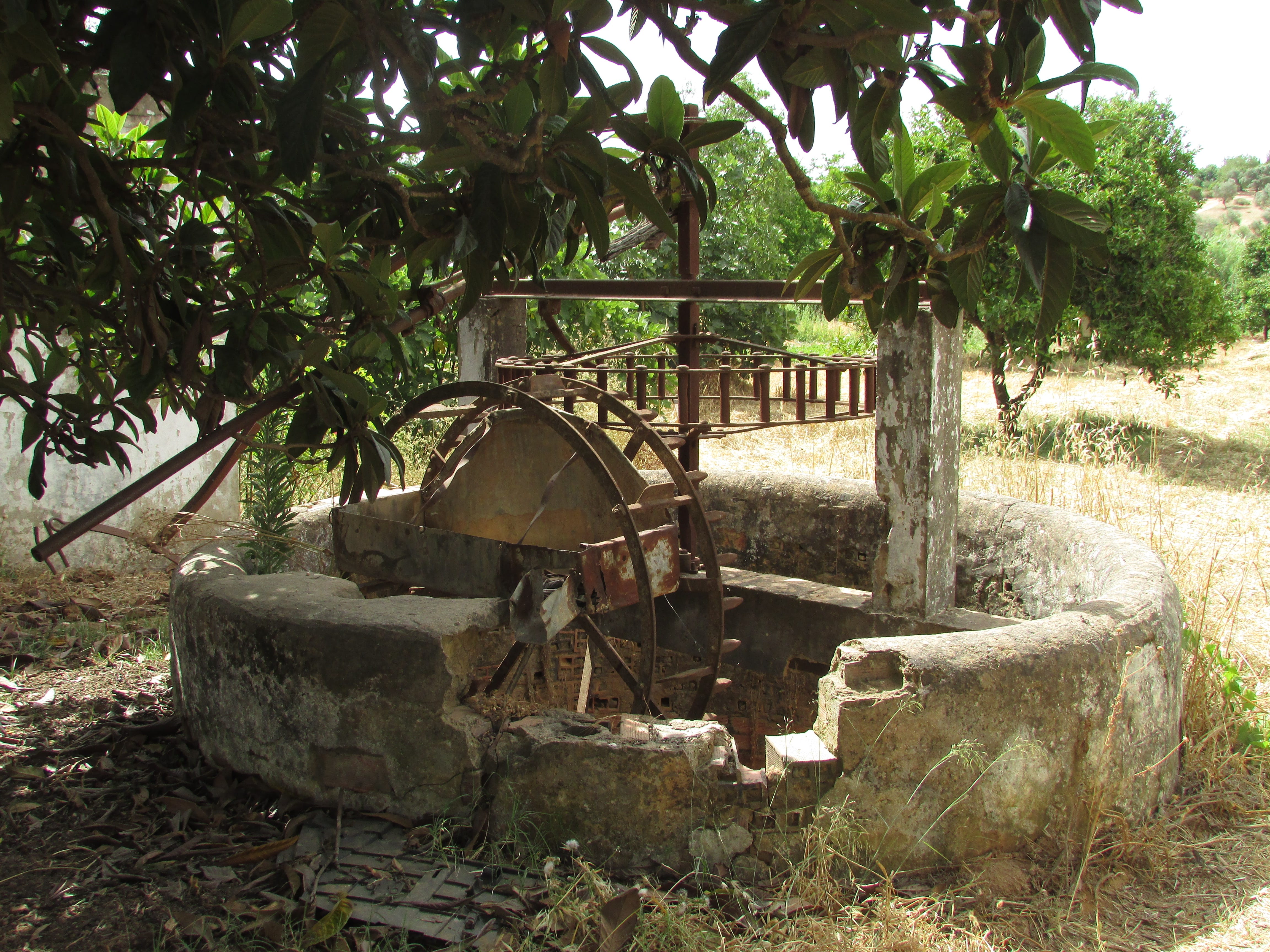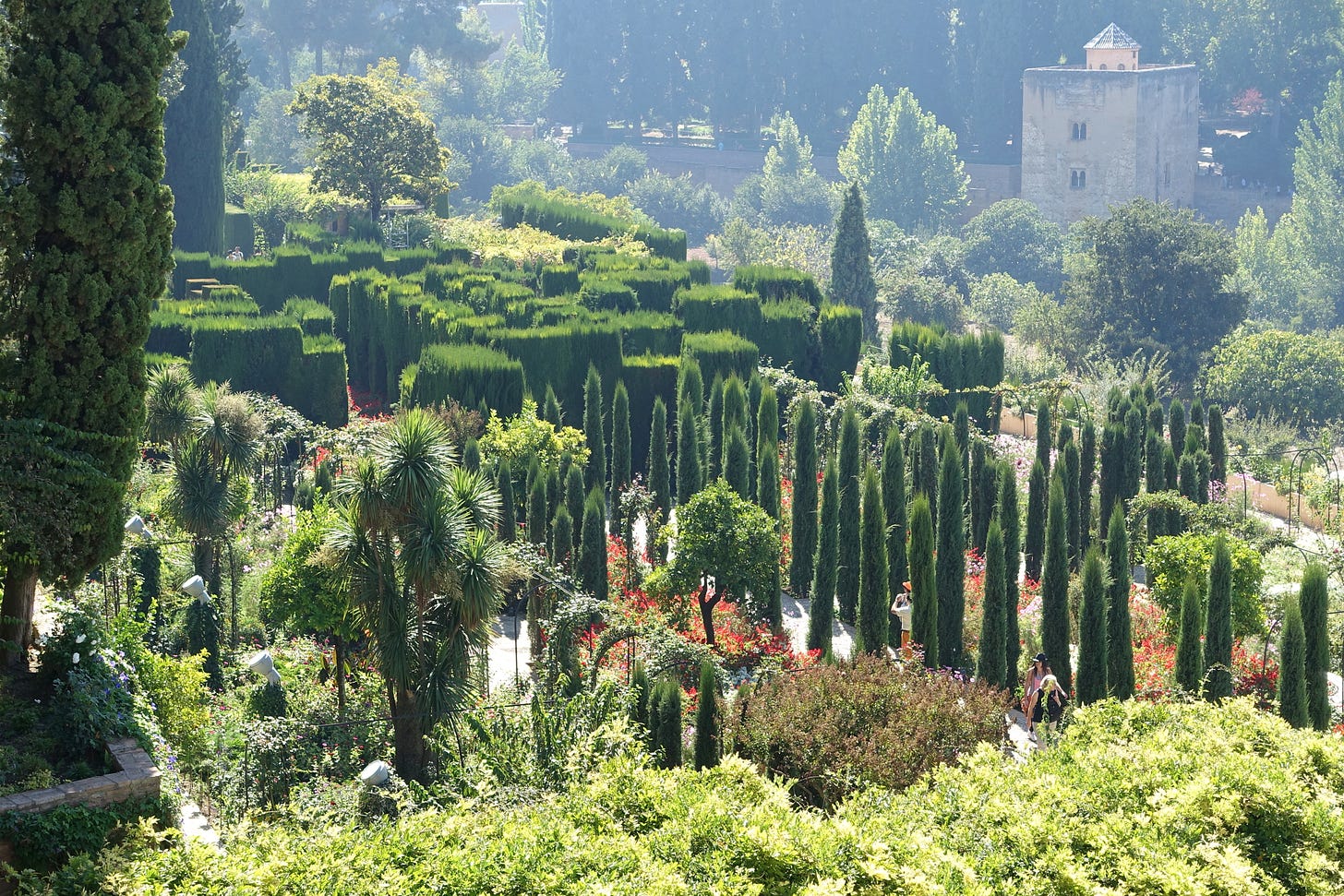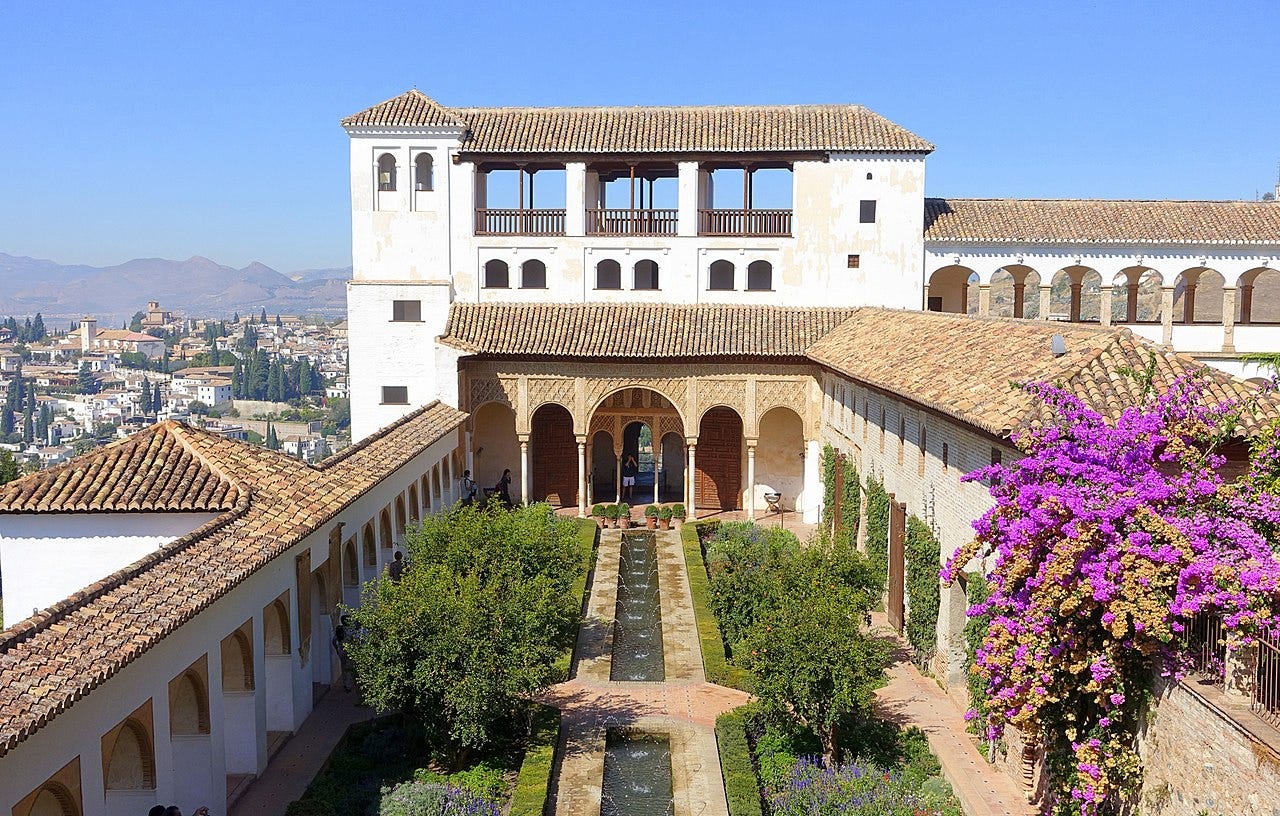The Green Faith: Exploring the Rich History of Gardening in Islamic Culture
From Quranic Teachings to the Islamic Golden Age: How Islam Nurtured a Legacy of Horticulture
Gardening and horticulture have deep roots in Middle Eastern culture and Islamic tradition, with the Prophet Muhammad and the teachings of Islam playing significant roles in shaping attitudes towards plants and gardens.
"For them is a known provision in paradise - fruits - and they will be honored in gardens of pleasure." (Quran, Surah As-Saaffat, 37:41-43)
Islam and Gardening
In Islam, gardens hold a significant place, both symbolically and practically. They are often seen as a symbol of heaven, described in the Quran as lush, tranquil places filled with flowing water, fruit, and flowers. The idea of gardens as representations of paradise has had a profound influence on the design and aesthetics of Islamic gardens. Moreover, the Quran and Hadith (sayings of the Prophet Muhammad) frequently reference agricultural and horticultural themes, encouraging the cultivation of the land and the care for plants.
Prophet Muhammad's Influence
Prophet Muhammad emphasized the importance of planting and caring for trees and plants. It is recorded in Hadith that he encouraged his followers to plant trees and engage in agriculture, promising spiritual rewards for these activities. The Prophet's teachings include specific references to planting trees, conservation of water, and the importance of caring for the environment, which reflects a deep ecological consciousness.
History of Gardening in the Middle East
The history of gardening in the Middle East is rich and dates back thousands of years. Ancient civilizations in the region, such as the Mesopotamians and Egyptians, developed elaborate gardens. But it was during the Islamic Golden Age (approximately 8th to 14th century) that gardening and horticulture reached new heights.

During this period, Islamic scholars and horticulturists made significant contributions to botany and horticulture. They developed new techniques in irrigation, such as the qanat and noria systems, enabling the creation of gardens in arid regions. The concept of the Persian garden, or Charbagh, with its quadrilateral design and focus on water, became an influential garden design not only in the Middle East but also in other parts of the Islamic world.

Botanical gardens and herbariums were established in various Islamic cities, where scholars studied plant properties and cultivation methods. This era also saw the translation and expansion of earlier Greek, Roman, and Persian works on botany and agriculture.
The garden in Islamic culture was more than a place of beauty; it was a reflection of the harmony and order of the universe as perceived in Islamic theology. It was a space where architecture, nature, and art converged, often featuring geometric designs, reflecting pools, and an array of plants and trees, which provided both aesthetic pleasure and practical benefits.
Impact on Global Horticulture
The Islamic influence on gardening extended beyond the Middle East. As Islamic rule spread to Spain and parts of Europe, it brought along its gardening traditions, influencing the design of gardens in countries like Spain and Italy. The Moors, for instance, introduced their gardening techniques to Spain, where the famous Alhambra and Generalife gardens still stand as testaments to Islamic horticultural expertise.
In summary, the connection between Islam, the Prophet Muhammad, and gardening is deeply interwoven with the cultural, religious, and historical fabric of the Middle East. The legacy of Islamic horticulture continues to influence garden designs and agricultural practices around the world.
Quranic Quotes on Gardening
And He it is Who sends down water from the sky, and We produce therewith the growth of all things; We produce from it greenery from which We produce grains arranged in layers. And from the palm trees - of its emerging fruit are clusters hanging low. And [We produce] gardens of grapevines and olives and pomegranates, similar yet varied. Look at its fruit when it yields and [at] its ripening. Indeed in that are signs for a people who believe.
— Quran, Surah Al-An'am, 6:99
For them is a known provision in paradise - fruits - and they will be honored in gardens of pleasure.
— Quran, Surah As-Saaffat, 37:41-43)
Hadith Quotes on Planting Trees
The Prophet Muhammad said, "If a Muslim plants a tree or sows seeds, and then a bird, or a person, or an animal eats from it, it is regarded as a charitable gift (Sadaqah) for him."
— Sahih Bukhari
There is none amongst the Muslims who plants a tree or sows seeds, and then a bird, or a person, or an animal eats from it, but is regarded as a charitable gift for him.
— Sahih Bukhari)
"If a Muslim plants a tree or sows a field and men and beasts and birds eat from it, all of it is charity from him."
— Sahih Muslim


